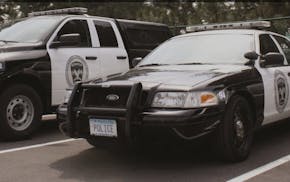In early May, the U.S. Supreme Court ruled in favor of the Trump administration's order to terminate temporary protected status (TPS) for Venezuelans.
The administration also decided to revoke TPS for Afghans in the United States.
Temporary protected status is an immigration classification that protects people from deportation and allows them to work in the United States. People from these countries have often experienced threats from armed conflict, environmental disasters or other dangers. In revoking TPS, the Trump administration declared that Afghanistan and Venezuela are safe places to return — a conclusion at odds with most accounts from people inside the countries.
The administration's revocation means that some 3,000 Venezuelans and 3,000 Afghans living in Minnesota can be deported. Many immigrants from these countries say they fear political persecution if they were to return home.
On May 29, Sahan Journal invited two experts — Nasreen Sajady, the executive director of the Afghan Cultural Society in Minneapolis, and Ana Pottratz Acosta, a professor at Mitchell Hamline School of Law in St. Paul — to share the experiences of community members and clients who are trying to navigate the changing landscape of immigration in the United States.
What is TPS?
Temporary Protected Status, or TPS, is a short-term immigration status granted to people from nations experiencing natural disasters or civil turmoil. It allows people to live and work in the United States, on a nation-by-nation basis, and was authorized by Congress in 1990.
Why have Afghans and Venezuelans received TPS status?
Following the fall of the Afghan government and the resurgence of the Taliban, the Biden administration granted TPS to Afghanistan in 2022. Similarly, the Biden administration granted TPS to Venezuelans in 2021 after worsening political persecution and humanitarian crises under the rule of President Nicolás Maduro.
Why are Afghans in Minnesota afraid to return home?
According to Sajady, Afghans tell her they fear retribution from the Taliban because of their previous political involvement or their history of assisting the U.S. military.
Why don't Venezuelans in Minnesota feel it's safe to return home?
Venezuelan nationals fear arrests and political persecution in Venezuela, Pottratz Acosta said.
Who in the U.S. government determined Afghanistan and Venezuela are safe for returning migrants?
In order to terminate TPS, the Secretary of Homeland Security must assess whether conditions are safe for return. Secretary Kristi Noem announced in early February and early May that conditions were safe in Venezuela and Afghanistan respectively — an opinion at odds with widespread reporting about political persecution in both countries.
What happens to immigrants from Afghanistan and Venezuela who lose TPS status?
Despite the end of TPS for Venezuelans and Afghans, both groups may have strong asylum claims based on political dangers faced in their home countries, according to Pottratz Acosta.
What should Afghan and Venezuelan immigrants do to manage their new situation?
As the Trump administration tries to expedite the deportation process, Pottratz Acosta recommends people who had TPS carry proof of their legal status at all times. This action may reduce the likelihood that they will be wrongfully detained and give them a stronger legal claim if they are wrongfully detained.
How can immigrants manage the stress of these challenges?
Afghans in Minnesota under TPS have expressed mounting fear of returning to Afghanistan, Sajady said. But she's been advising clients to remain focused on trying to build a new life in the United States. She notes that her nonprofit, the Afghan Cultural Society, focuses on offering community and solace to those under distress. Amid growing fears, the Afghan Cultural Society continues to hold events featuring food and music, providing a sense of community to Afghans in Minnesota.
Is it safe for TPS and asylum seekers to travel?
Pottratz Acosta recommends that these immigrant groups avoid international travel due to the risks associated with re-entry to the United States. With or without a passport, it is possible to be detained by customs. However, she added, there shouldn't be a problem with traveling domestically.
What's the situation for children born in the United States?
Children born in the U.S. are U.S. citizens under the Fourteenth Amendment of the Constitution. However, the Supreme Court is actively hearing arguments for an executive order that seeks to terminate that clause. Pottratz Acosta suggests families apply for a U.S. passport for their U.S.-born children. This process may strengthen immigration claims for families seeking TPS or asylum.
About the partnership
This story comes to you from Sahan Journal, a nonprofit newsroom dedicated to covering Minnesota's immigrants and communities of color. Sign up for a free newsletter to receive Sahan's stories in your inbox.

What's the point? It's the annual sharpening of the giant pencil on Lake of the Isles

Four arrested, no one injured in fighting and shooting following Burnsville High School graduation

Brooks: Hard lives led to hard-won diplomas for these Minnesota high schoolers
U faculty and students fear budget cuts and tuition hikes will reduce staffing and enrollment

